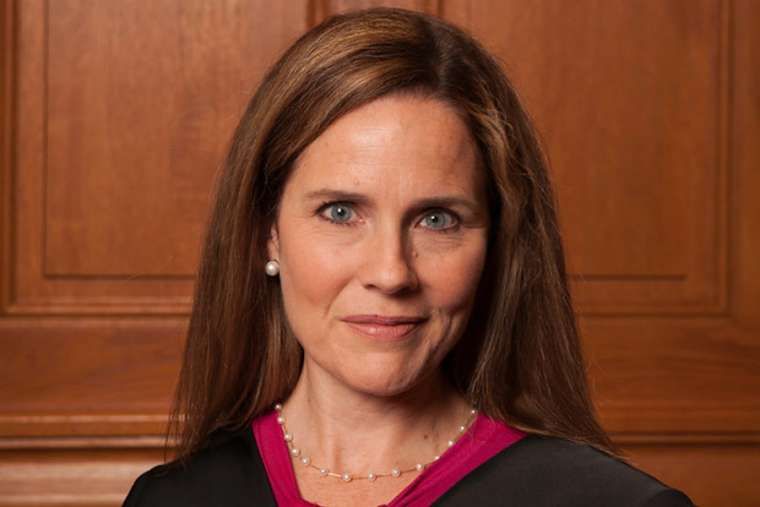The last time Amy Coney Barrett was before the United States Senate for a judicial confirmation, it didn’t go well. Not because she wasn’t articulate and not because she wasn’t confirmed to a federal appeals court seat.
It didn’t go well because Senate Democrats trashed her Christian faith.
Democrats on the Senate Judiciary Committee asked Barrett, who President Donald Trump nominated Saturday to the United States Supreme Court, about how her Catholic religious views might affect the discharge of her judicial duties during her September 2017 confirmation hearing.
Questions about Barrett’s faith arose from a 1998 law review article she wrote with a professor examining the obligations of Catholic judges in death penalty cases, which ironically said one’s faith shouldn’t dictate proper judicial decisions.
On September 6, 2017, Senator Dick Durbin asked Barrett, “Do you consider yourself an orthodox Catholic?”
SIGN THE PETITION: Vote to Confirm Supreme Court Nominee Amy Coney Barrett
Durbin, a product of 19 years of Catholic-school training, confessed that he did not know what the term “orthodox Catholic” meant. He was being more than coy. An orthodox Catholic is someone who accepts the teachings of the Catholic Church. That would obviously exclude Senator Durbin: he champions abortion, something the Church calls “intrinsically evil.”
Durbin’s question was meant as a red flag: He was signaling to his base that Barrett is a hard-line Catholic, someone whose strongly held religious beliefs will determine her decisions and, as such, she is not qualified to serve.
Senator Feinstein was worse.
“When you read your speeches,” she said to Barrett, “the conclusion one draws is that the dogma lives loudly within you.”
When Barrett testified before the Senate Judiciary Committee last fall, she pointedly said, “I see no conflict between having a sincerely held faith and duties as a judge. I would never impose my own personal convictions upon the law.”
In May 2019, Barrett addressed those questions and condemned them as a false religious test for office.
“We have a long tradition of religious tolerance in this country and in fact the religious test clause in the Constitution makes it unconstitutional to impose a religious test on anyone who holds public office,” Barrett said during remarks at the Washington, D.C., campus of Hillsdale College.
“I think when you step back and you think about the debate about whether someone’s religion has any bearing on their fitness for office, it seems to me that the premise of the question is that people of faith would have a uniquely difficult time separating out their moral commitments from their obligation to apply the law,” Barrett added. “I think people of faith should reject that premise.”








